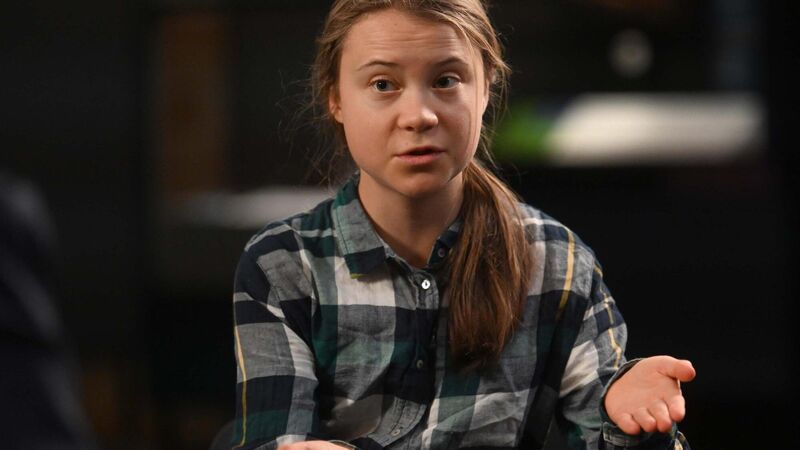Colman Noctor: Young and old need to work together to protect the planet

Climate activist Greta Thunberg being interviewed at the London's Natural History Museum for her appearance on the BBC1's current affairs programme, The Andrew Marr Show.
One of the most green-conscious members of my family is my 11-year-old son. A stereotypical oldest child, he is conscientious, hard-working and, depending on your view, is blessed, or cursed with a high moral compass. He has learned in school how we need to protect the planet and will often remind other family members of practices that are contrary to this goal.
He is the one child that realises that an apple core goes in the brown compost bin and not the recycling one, he will also point out waste when it comes to our energy usage, and he reminds me regularly that my diesel pickup truck has to go.
CLIMATE & SUSTAINABILITY HUB










